Atrial Appendage Occluder Implantation for Atrial Septal Defect (ASD) treatment in Germany
Treatment prices are regulated by national law of the corresponding countries, but can also include additional hospital coefficients. In order to receive the individual cost calculation, please send us the request and medical records.
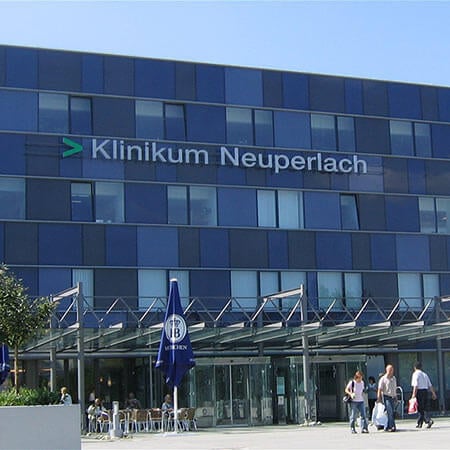
Department of Cardiology and Pulmonology
The Department of Cardiology and Pulmonology provides the full range of diagnostic and therapeutic services for patients with diseases of the cardiovascular system and lungs. In the field of cardiology, key attention is paid to the treatment of valvular heart disease, arrhythmias, heart failure, coronary artery disease, arterial hypertension and aortic diseases. The department's pulmonologists mostly deal with the treatment of pneumonia, bronchial asthma and chronic obstructive pulmonary disease. In addition, the department operates an Intensive Care Unit, within which patients can receive artificial ventilation, renal replacement therapy and procedures for maintenance of blood flow. The department's Chest Pain Unit is certified by the German Cardiac Society and provides medical care to patients with acute coronary syndrome. The department successfully uses in its clinical practice both proven classical treatments and innovative medical achievements, which are available only in leading European hospitals. The department's medical team provides treatment to more than 3,200 patients every year.


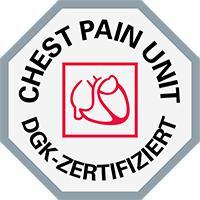
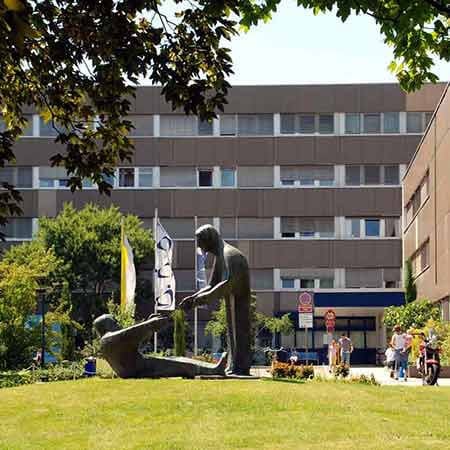
Department of Cardiology and Angiology
The Department of Cardiology and Angiology offers the full range of medical services in the fields of its competence. The department's doctors specialize in the treatment of congenital and acquired heart defects. The key focus is on catheter-based heart interventions, which are characterized by a minimal trauma rate and allow patients to avoid an open operation. For this purpose, the department has three modern Cardiac Catheterization Laboratories. The department also houses an Intensive Care Unit and a Chest Pain Unit for patients with acute coronary syndrome. The medical facility has 82 beds. The department was awarded the prestigious quality certificate from the German Cardiac Society (DGK) for outstanding results in the treatment of mitral valve diseases and acute coronary syndrome. Another important area of work of the department's physicians is comprehensive heart examinations for the prevention of heart disease. For this purpose, specialized Check Up Programs have been developed here, which include an optimal set of diagnostic tests. The medical facility employs a highly professional team of doctors and nursing staff, which makes every effort to provide each patient with effective medical care in a pleasant and comfortable atmosphere.
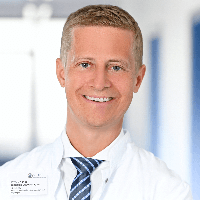

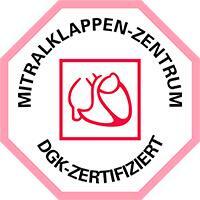
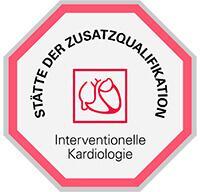


Department of Cardiology and Angiology
The Department of Cardiology and Angiology offers the full range of medical services in the areas of its specialization. The medical facility holds consultations and carries out the diagnostics and treatment of diseases of the heart and blood vessels. The department's team of cardiologists focuses on patients with valvular heart disease, heart rhythm disturbances, coronary artery disease, heart failure, and congenital heart disease. The department has a Chest Pain Unit certified by the German Cardiac Society (DGK) for the treatment of acute coronary syndrome. In the field of angiology, of key interest is the treatment of peripheral arterial occlusive disease, vascular stenosis of various locations, including carotid artery stenosis, and deep vein thrombosis. During the treatment of diseases of the heart and blood vessels, the department’s specialists use various drug therapy regimens and perform image-guided interventional procedures. The medical facility has been recognized with quality certificates for transcatheter aortic valve implantation (TAVI) and treatment of heart failure and mitral valve disease. Patients are treated by highly qualified physicians who strive to restore the patient's health using sparing treatment methods.
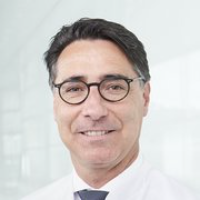





An atrial septal defect (ASD) is one of the most common heart defects. It accounts for up to 25% of all cases. This heart disease is relatively mild because the general condition of patients is usually not disturbed, with the exception of very large defects, which are uncommon. But still, many people develop complications over time. With a defect larger than 1 cm, treatment is therefore required. A surgical procedure can be either open or endovascular.
In countries offering advanced medicine, 90% of atrial septal defects are closed from within the blood vessels without open-heart surgery. You can seek medical attention at one of the German hospitals to have an occluder implanted to treat heart disease. You are welcome to use the Booking Health service. On our website, you can see the real cost of treatment in Germany, compare prices at different German hospitals, and make an appointment at the most suitable one.
Content
- Principles of treatment of an atrial septal defect
- Who may be a candidate for an occluder implantation procedure to treat an atrial septal defect?
- Why to undergo your atrial septal defect treatment in Germany?
Principles of treatment of an atrial septal defect
An atrial septal defect closure is carried out using an occluder at hospitals in Germany and other countries with advanced medicine. This means that the treatment is done from inside the blood vessels without any chest incisions. Doctors make an incision in the groin to deliver the device to the heart. The occluder implantation procedure is performed under local or intravenous anesthesia under the guidance of angiography (a contrast-enhanced X-ray scanning of the blood vessels).
The occluder is a double disk that has a connecting segment. The segment holds the two discs together and passes through the opening in the atrial septum. As a result, the septal defect is completely closed, and the blood no longer passes through it.
Following the occluder implantation procedure, patients with heart disease get rid of their symptoms. The risk of developing complications from an atrial septal defect (ASD), such as pulmonary hypertension or heart failure, is also reduced.
Who may be a candidate for an occluder implantation procedure to treat an atrial septal defect?
Most patients with heart disease are suitable candidates for endovascular treatment. It is important that a sufficient amount of normal tissue from the septum of the heart remains at the edges of the defect for a successful placement of the occluder. It must be at least 5 mm for the implantation of self-centering occluders and even more for non-self-centering devices.
Endovascular treatment can usually be performed even in the presence of multiple defects. But it is important that they are located in such a way that the occluder can close all the defects at once and, at the same time, there is tissue left for its reliable fixation.
Endovascular treatment is difficult to perform in cases where the atrial septum is deformed, for example, if it is convex. Open surgical interventions are also required for coronary and venous sinus defects, primary (low) atrial septal defects, and a combination of the disease with other heart defects.
Thanks to technological progress, the number of contraindications to occluder implantation is constantly decreasing. In countries with advanced medicine, more and more cases of congenital heart defects are being treated using a minimally invasive endovascular technique, which is gradually replacing open-heart surgery.
Why to undergo your atrial septal defect treatment in Germany?
Doctors at hospitals in Germany achieve outstanding results in treating cardiovascular diseases. Up to 90% of patients with atrial septal defects are treated in Germany with an endovascular technique, and the proportion of open operations tends to further decrease as new occluders, their delivery systems, and improvements in endovascular surgery techniques become available.
There are a few reasons for you to undergo your treatment in Germany. These are the following:
- a country with a high level of medicine;
- extensive experience in endovascular procedures for atrial septal defects: these have been performed in Germany for more than half a century, and today this is the main method of treating heart disease;
- a perfect technique for performing the procedure due to the high-quality training of surgeons;
- a low risk of needing to switch to open surgery;
- the use of the cutting-edge occluders of the latest generations;
- a low risk of complications from the procedure, including blocks, occluder migration, etc.;
- occluder implantation procedures are successful even in complex cases: in children with low weight, in adults with arrhythmia, and in patients with aortic edge deficiency of the interatrial septum.
You are welcome to use the Booking Health website to find out the cost of treatment in Germany. When you make your treatment appointment through this service, the cost of treatment in Germany will be lower for you than if you contact a hospital in Germany directly. The prices will be lower due to the absence of taxes for foreign patients.
The Booking Health specialists will take care of all the arrangements for your treatment in Germany. We will select the best Cardiovascular Surgery Center for you, contact its administration, schedule an appointment on your preferred dates, and translate your medical records into German. The employees at Booking Health will meet you at the German airport and take you to the hospital by car. After the completion of your medical care program, our company's employees will organize your return transfer.
Authors:
The article was edited by medical experts, board-certified doctors Dr. Nadezhda Ivanisova and Dr. Vadim Zhiliuk. For the treatment of the conditions referred to in the article, you must consult a doctor; the information in the article is not intended for self-medication!
Sources:
European Society of Cardiology

